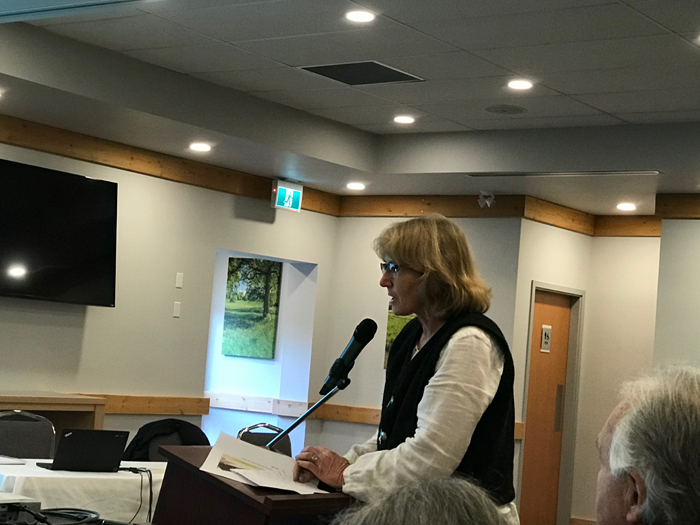Two organizations looking to build a community composter on Salt Spring addressed the Salt Spring Local Trust Committee last week to discuss barriers to completing the project.
The Salt Spring Island Farmland Trust Society, along with Salt Spring Island Community Services, have been working to build a community composter at the Burgoyne Valley Community Farm. The composter would allow materials typically taken off-island and disposed in a landfill to stay on the island and help build soil fertility. The partner groups addressed the Trust because in order to get the composter constructed, the Agricultural Land Commission requires that there is no prohibitions from local government. Multiple concerned parties and farmers from the island also spoke favourably about the project during the town hall portion of the meeting.
“That’s ALR land, so our first reference point is the Agricultural Land Commission. They say it’s fine with them in legislation and regulations. The only provisions are that we comply with whatever the Ministry of Environment requires, which is reasonable, and that the local government is not prohibiting it — which is different from approving it,” Farmland Trust president Patricia Reichert explained.
Under current regulations, composting facilities are only allowed in Industrial-zoned properties. A communication from the Trust to SSICS and the Farmland Trust Society explained that if a use is permitted in one zone, then it is excluded from all others.
Islands Trust regional planning manager Stefan Cermak explained that two areas on the island were permitted to have such a facility, one near Gulf Islands Secondary School and one being the property housing the Farmland Trust’s “The Root” food security hub on Beddis Road. Cermak also explained that in order to build the composter at the farm, two options existed: to either rezone a part of the Burgoyne Valley farm property to allow the composting facility, or to apply for a temporary use permit that would do the same. He said no application has been submitted.
Reichert and SSICS executive director Rob Grant both said that those options were not possible. During the presentation, Reichert expressed her concern that the TUP could establish a precedent that would limit, based on the exclusion mentioned above, other farmers from being able to compost on their properties. Cermak later told the Driftwood that the temporary use permit would not establish any precedents.
Composting appears in an ongoing update to the Trust’s zoning bylaws. The proposed Bylaw 489 would allow composting of agricultural waste produced onsite to be a permitted use in all zones that permit agriculture, and that composting organic matter originating at the site of the operation could be a permitted use in all zones. Under that bylaw, all commercial composting would be subject to the Capital Regional District’s Composting Facilities Regulation Bylaw. The Trust bylaw is currently awaiting ministerial approval.
Relocating the facility to the Farmland Trusts’ The Root building would not be an option, Grant explained.
“The whole essence of this was to integrate it with the activity on the farm. It’s not a stand-alone activity. A very particular set of things all needed to come together and balance to make it work. It takes a bit of labour to do it. That’s where we [SSICS] come in. We can bring the labour. We’re not at The Root. So there’s a huge efficiency to integrate everything on that property. All of the pieces are there,” he said.
“We want [the Trust] to circle back and have another look at it,” he added. “The staff have determined that it’s not zoned appropriately, our position is that it absolutely is permitted. We want another look at that.”
Cermak told the trustees later in the Nov. 26 meeting that “composting is absolutely permitted and we would never prevent that from happening. What they are asking for is a composting facility, which has to be done on land zoned for it.”
“We’ve been really trying to help them as much as we can,” he added. “Staff are really keen to help them get a composting facility. We know it’s important. We just can’t do it without zoning.”
For more on this story, see the Dec. 3, 2019 issue of the Gulf Islands Driftwood newspaper, or subscribe online.

